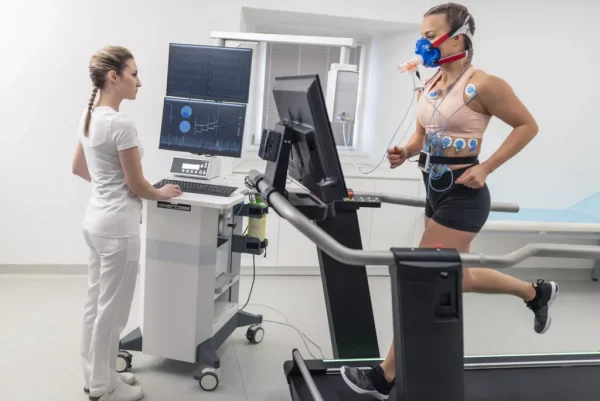GAIN SKILLS
CHANGE YOUR LIFE
The healthcare and information technology fields are growing at an extraordinary rate, and our training programs are designed so you will be prepared for anything and everything you will face in your chosen industry.
Explore your career options in both of these burgeoning fields below.
LEARN MORE ABOUT THE CAREER LANDSCAPE OF HEALTHCARE AND INFORMATION TECHNOLOGY
HOW HEALTHCARE IS GROWING

An increasingly aging population is causing massive growth within the healthcare field. In fact, U.S. healthcare spending reached $4.1 trillion in 2020, or $12,530 per person, and is estimated to reach $6.2 trillion by 2028, according to the Centers for Medicare and Medicaid Services.
This growth has changed the landscape of healthcare. In addition to traditional healthcare roles like nurses, doctors, and specialists, there are a multitude of openings in positions such as medical assistant, EKG technician, patient care technician, and many more.
There’s no shortage of healthcare career possibilities in hospitals, clinics, physicians’ offices, and even government organizations.
The U.S. Bureau of Labor Statistics (BLS) reports healthcare jobs are projected to grow 16% through 2030, adding a total of about 2.6 million new jobs.
Medical assistants, dental assistants, and EKG techs are just a few of the in-demand jobs in the industry. Take a look at these healthcare career statistics:
- Medical assistant: Projected job growth is 18% through 2030 with an annual salary in 2021 of $37,190.
- Dental assistant: Projected job growth is 11% through 2030 with an annual salary in 2021 of $38,660.
- EKG technician: Projected job growth is 14% through 2030 with a starting salary ranging from $35,900 to $46,800.
In order to fill the gaps for in-demand jobs in high-growth sectors like healthcare, Southern Adventist University is dedicated to helping professionals develop necessary skills with our industry-recognized certificates.
- Communication
- Time management
- Ability to work in a team
- Adaptability and flexibility
- Empathy and compassion
Ideal hard skills to possess within the health care industry include:
- Record vital signs
- Ability to read and analyze patient data
- Understand insurance plans and practices
- Knowledge of health care computer systems and databases
- Handling laboratory specimens and providing patient education
CHOOSE A PROGRAM THAT FITS YOUR CAREER GOALS!
Phlebotomy Technician Career Training
Sterile Process Technician Career Training
Sterile Processing & Surgical Technologist
Pharmacy Technician Career Training
Medical Administrative Assistant Career Training
Patient Care Technician Career Training
Clinical Medical Assistant Career Training
Physical Therapy Aide Career Training
Healthcare IT Technician Career Training
Physician's Office Assistant with EHRM Career Training
EKG Technician Career Training
HOW INFORMATION TECHNOLOGY IS GROWING

We are in the midst of a technological revolution that is utterly changing the world as we know it. Both businesses and personal lives alike are impacted exponentially by the constant increases in the application of technology. Technology is a huge part of everyday life. In 2021 alone, the U.S. tech industry contributed approximately $1.8 trillion to the country’s overall gross domestic product (GDP), which equates to about 9.3% of total GDP.
While the tech sector is significant on its own, all kinds of businesses also rely on IT daily in order to develop software, collect, and use data, as well as protect all collected data from cyber threats.
As companies increasingly blaze the trail of technology to gain a competitive advantage, it opens the door wider for career mobility.
In a recent CompTIA IT industry outlook report, 80% of IT professionals felt good about their role as a technologist. Ultimately, IT professionals continue to have a positive outlook on their job expectations.
According to the U.S. Bureau of Labor Statistics (BLS), computer and IT jobs are projected to grow 13% through 2030, faster than average for all occupations.
Not only does the IT industry offer job security, but a promising income as well. The median annual wage for computer and IT employees was $97,430 in May 2021.
Depending on the area of IT you work in, job growth and annual income can increase. Take a look at these following IT career statistics from the BLS:
- Information security analyst: Projected job growth is 33% through 2030 with an annual salary in 2021 of $102,600.
- Computer and information research scientist: Projected job growth is 22% through 2030 with an annual salary in 2021 of $131,490.
- Software developer: Projected job growth is 22% through 2030 with an annual salary in 2021of $110,140.
Popular IT career roles exist within the cyber security, data science, and software development fields.
To be successful in the tech industry employees must hold a number of in-demand soft and hard (technical) skills.
Ideal soft skills to possess within the tech industry include:
- Organization
- Communication
- Problem-solving
- Drive to help others
- Project management
Ideal hard skills to possess within the tech industry include:
- Data modeling
- Coding from scratch
- Cloud computing to manage Big Data
- Knowledgeable of SQL, Tableau, Python
- Know common cyber-attack tactics and how to defend against them
Earning IT certificates online from Southern Adventist University helps you quickly up-skill, so you can confidently land the IT job you’ve been dreaming about.
CHOOSE A PROGRAM THAT FITS YOUR CAREER GOALS!
Products Not Found
INTERESTED IN ANOTHER CERTIFICATE PROGRAM?

Founded in 1892, Southern Adventist University provides a quality, Christ-centered undergraduate and graduate education to approximately 2,700 students each year. Caring professors, hands-on training, and a wide selection of academic options prepare students for success, as demonstrated by our graduates’ impressive job placement numbers and high median starting salaries. Located in the foothills of the Smoky Mountains, Southern’s 1,300-acre campus features nearly 40 miles of hiking and biking trails, a top-notch fitness center, and much more.

VIEW SOUTHERN'S DEGREE PROGRAMS
In addition to our certificate programs, Southern offers traditional college degrees with more than 100 academic options. View Southern’s Degrees

INVESTING IN A SOUTHERN DEGREE
Investing in a college degree is an important decision. Southern’s traditional degrees offer financial aid options for students. Learn about Southern’s Student Finance Options.










